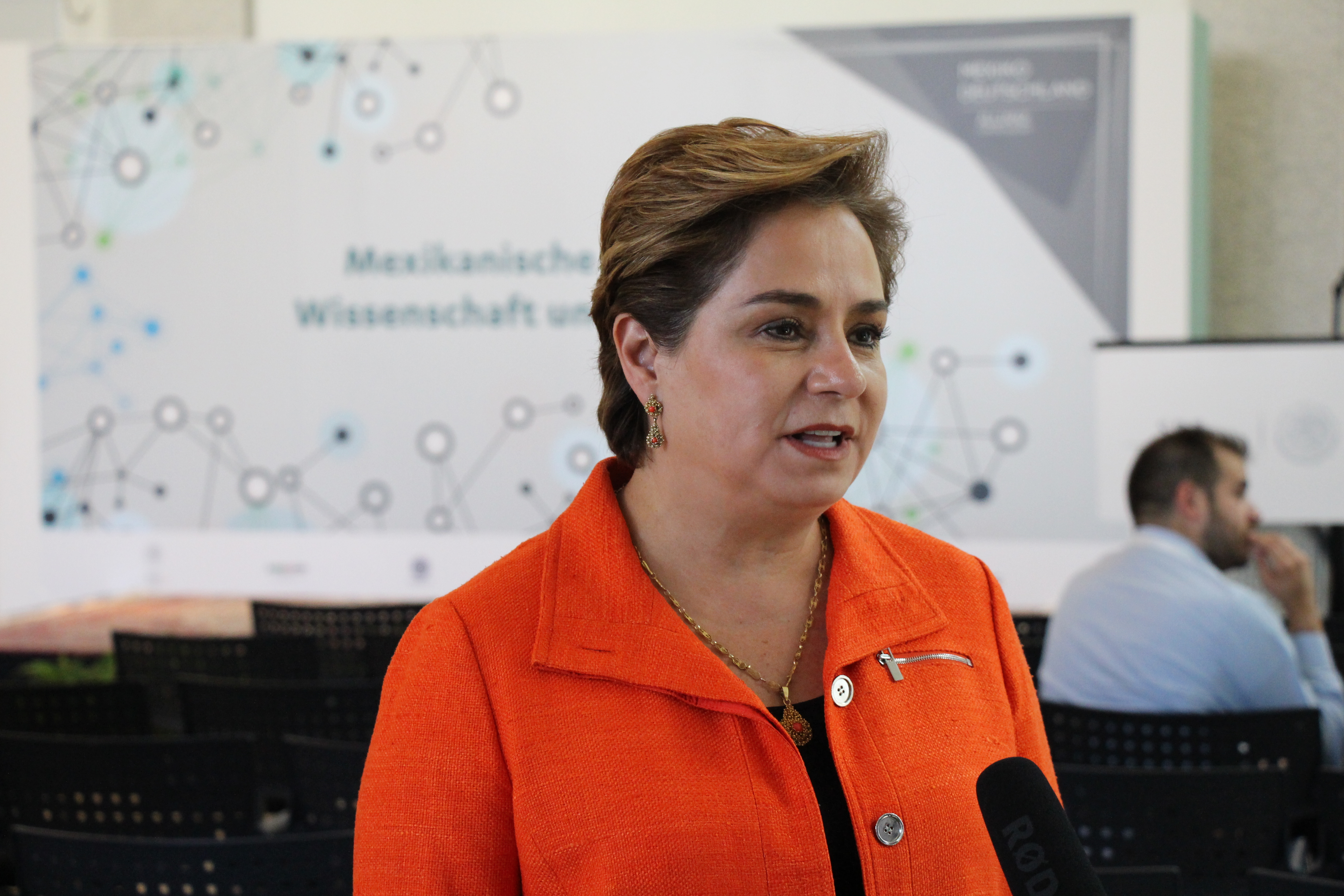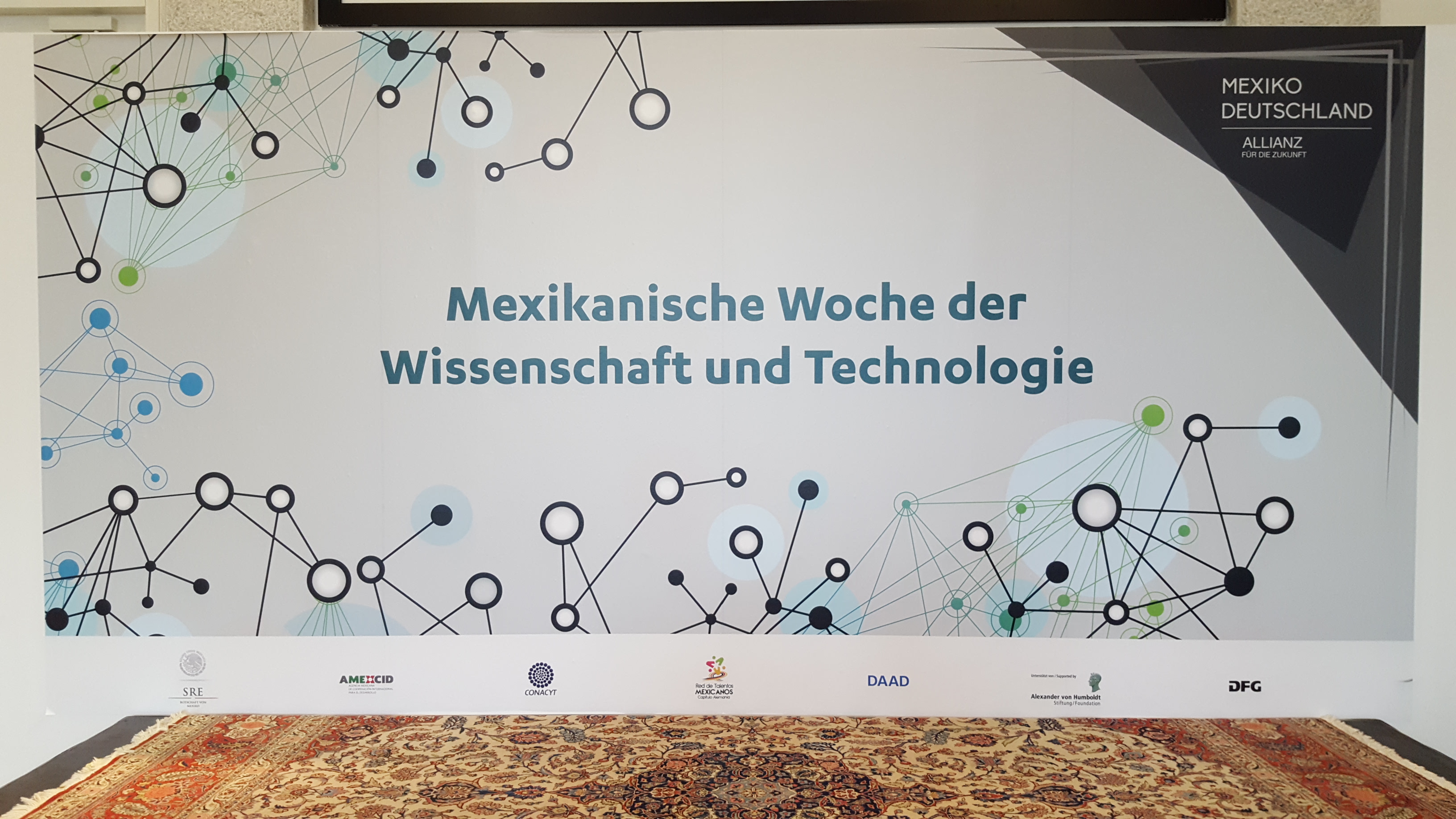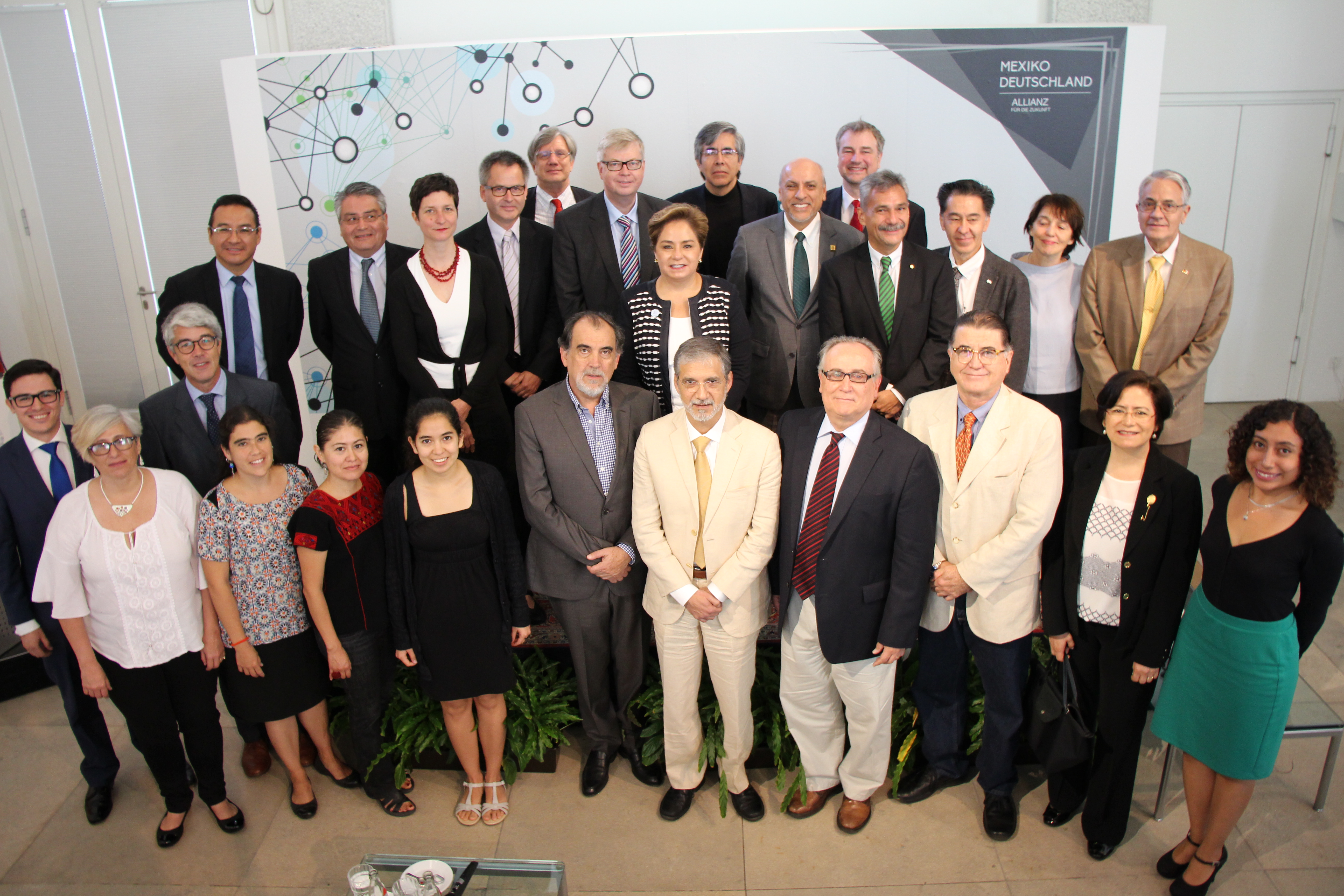DFG Participation in Mexican Week of Science and Technology in Berlin
Mexican Ambassador Patricia Espinosa Cantellano
(03.08.16) The “Mexican Week of Science and Technology” took place at the Mexican Embassy in Berlin from 4 to 6 July, as part of the Dual Year Germany - Mexico.
The goal of the event was to present the results of Mexican-German scientific cooperation to a selected audience, and to create a forum for discussion about science and the humanities, research, training for early career researchers, and technology. Scientists from Mexico and Germany presented results from jointly funded scientific and academic exchange projects.
In addition to the keynote lecture, “The Chicxulub Asteroid Impact and the Extinction of Dinosaurs”, by the president of the Mexican Academy of Sciences, Prof. Dr. Jaime Urrutia, the focus on the first day was on presentations from projects that are funded jointly by the DFG and its Mexican partner organisation, CONACYT. This session was organised jointly by the Mexican Embassy, the DFG and CONACYT.
The event was opened by the Mexican Ambassador Patricia Espinosa Cantellano, the President of CONACYT, Prof. Dr. Enrique Cabrero Mendoza, and Dr. Frithof Maennel of the Federal Ministry of Education and Research. In her welcome speech, Ambassador Espinosa noted the importance of the bottom-up initiated collaboration between Mexican and German researchers, which – characterised by personal and topic-related partnerships – is an important pillar for successful joint research between both countries.
Prof. Dr. Wolfgang Stinnesbeck from the University of Heidelberg and Prof. Arturo Gonzales from the Museo del Desierto in Saltillo, northern Mexico, presented the results of many years of palaeontological research in the form of a fascinating journey through time. In their talk, they reconstructed Mexico’s significance as a unique place of development worldwide for an environment that is millions of years old.
Prof. Dr. Stefan Rinke, Prof. Dr. Marianne Braig from the Institute for Latin American Studies of the Free University of Berlin and Prof. Dr. Jean François Prud’homme from the Colegio de México, as spokesperson team for the German-Mexican Research Training Group “Between Spaces – Movements, Actors and Representations of Globalisation”, presented the results of the IRTG. From the perspective of Mexico and Latin America they discussed movements between different world regions and the related emergence of new spaces in three globalisation phases: in the colonial period, in the late 19th and early 20th century, and in the present day. In particular, as well as the academic results, they highlighted example career paths of Mexican and German early career researchers, who, within the framework of the IRTG, were able to pursue their academic careers as far as professorships in Mexico and Germany.
In their talk, Prof. Dr. Jan Siemens from the University of Giessen and Prof. Dr. Christina Siebe from the Universidad Autónoma de México (UNAM) presented results on the spread of pharmaceuticals and the development of resistance in human pathogenic microorganisms due to irrigation with untreated waste water in Mexico. These results are of transregional importance, since irrigation with waste water – particularly in (semi-)arid areas – is common worldwide.
To close the DFG/CONACYT session, Prof. Dr. Reinhard Fischer and Prof. Dr. Rosa Mouriño Pérez from the CICESE research centre presented results from the first German-Mexican Research Unit “Determinants of Polarized Growth and Development in Filamentous Fungi”. The Research Unit looks at basic processes in the growth of fungi, which were demonstrated in video recordings. Also discussed was the importance of fungi in the context of industrial production, for example of enzymes.
After the talks, there were numerous questions from the audience and from among the speakers that the boundaries of the various disciplines.
The event illustrated the high level at which German-Mexican research cooperation works, and how the DFG collaboration with CONACYT enables co-financing, both in individual cases such as research grants, and for coordinated programmes such as Research Units and International Research Training Groups. On 21 July 2016, to further strengthen the collaboration, the DFG and CONACYT launched a call for proposals for German-Mexican research grants.
For the DFG, Mexico is a priority area in the collaboration with Latin America. In the last six years, a total of over 90 DFG projects were funded, across all areas of science and the humanities. Particular mention should be given to research in social sciences and the humanities, palaeontology and biology. The German-Mexican International Research Training Group “Between Spaces” was the first to include a Latin American country and has been funded since 2010.
As part of the Dual Year Germany – Mexico, the DFG, together with the University of Heidelberg and the State Natural History Museum in Karlsruhe (SMNK), will hold a “Mexico Day” at the SMNK on 9 November 2016. The focal point of the event will be the presentation of the results of a 20-year research cooperation in the area of palaeontology, which came into being through collaboration between Germany and Mexico with partners from universities as well as museums, and which has resulted in key insights into Mexico’s geological and historical development and significance.


